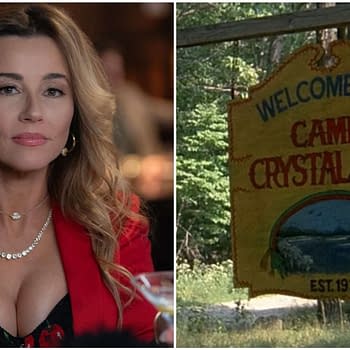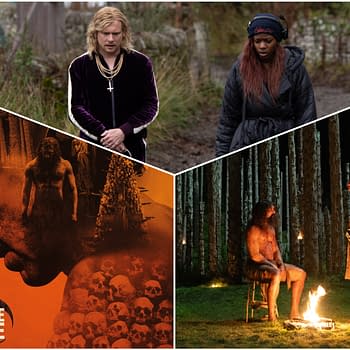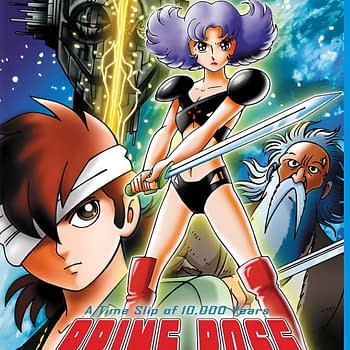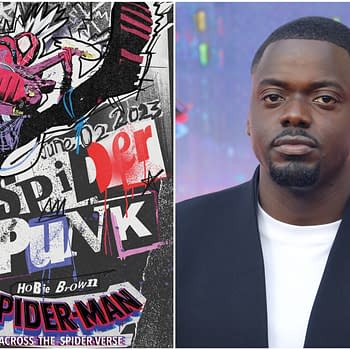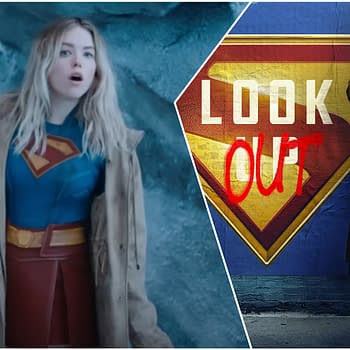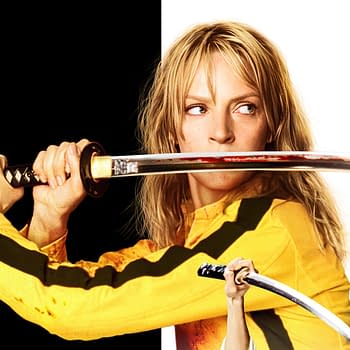Posted in: Movies, Recent Updates | Tagged: reese witherspoon
How Reese Witherspoon's New Film Could Go Horribly Wrong (With Optional Custard Pie)

Here's the premise of the film, from our source The Hollywood Reporter:
The story centers on a career-oriented adult whose perfectly tailored life is thrown for a loop when all the wishes she made as a child are suddenly granted.
And here's my thought process, right up until the point where I gave myself a mental slap on the wrist for prejudging a film based on its logline, which is a terrible habit but one I can't seem to kick.
Thought #1: Oh god.
Thought #2: I saw this film back when it was called Drop Dead Fred.
Thought #3: Also when it was called Freaky Friday.
Thought #4: Also when it was called Liar Liar.
Thought #5: This sounds like the sort of film that gets recut by a Youtube scamp with clips from the aversion therapy scene in A Clockwork Orange.
But of course, there is no reason whatsoever that this film should turn out to be dire and predictable, especially with two respectable writers onboard. Perhaps it will break free of the Hollywood formula and tropes and become a beautiful butterfly, surprising us all with its originality and willingness to push the envelope.
But if, hypothetically, I were a lazy studio exec trying to fill a summer "light comedy" niche, here's how I would write this film:
We open with Reese Witherspoon in her office, talking on two mobile phones at once because she's so career driven that one conversation at a time is not efficient enough. A scatterbrained but loveable coworker leans in the door and engages in a brief conversation that somehow raises the subject of "the big promotion". Then a scene of Witherspoon handing the Pensky file to her boss, who is even tougher and meaner than her. The Big Promotion is not talked about explicitly but it exists as subtext. Fancy, eh?
We need to move things along. How about a visit to the parents? Yes! The mother is overly affectionate and cooks too much, perhaps gives Witherspoon an ugly jumper to show how loving and yet out of touch she is. Father is cold and distant, talks at all times through a copy of The Economist and asks loaded questions about "how things are at work" with an air of ambiguous disapproval.
Witherspoon finds eponymous Wish List in her childhood bedroom [insert flashback of her as a happy, carefree young rapscallion dressing up as a fairy and shooting elderly neighbours with a BB gun] and goes to sleep with it under her pillow or something, because we all know that's how the magic happens.
Fifty minutes of wishes coming true, equal measures of whimsy and slapstick. Stick a love interest in there somewhere. How about a pizza delivery boy, with no career ambitions but lots of heart? Perfect.
Last fifteen minutes: Witherspoon realises that by feeding only her ambition she has starved her inner child, but by revisiting the person she once was she is finally able to find happiness in a balance between work and play. Her mean boss confronts her and asks her to do something (fire the loveable but scatterbrained colleague, redo the Pensky file, whatever) and she stands up to him at last. This scene may or may not end with Witherspoon throwing a custard pie at the boss and being carried out of the office on the shoulders of her elated coworkers. She opens a pizzeria with the obligatory love interest. They make a pizza shaped like a heart, with a "The End" credit spelled out in anchovies.
Note: there should be a race to the airport at some point. Those always go down well.
There. Now I can just sit back and wait for the Hollywood executives to start calling and begging for more of my genius.
Incidentally, here's the original logline for the film. It reveals that the character underwent what some might call a bit of a radical change during development.
A 30-year-old, stuck in a dead end life, finds that all the wishes he wrote on a list when he was 6-years-old are coming true. Suddenly imaginary friends and strange powers become the norm in his life.
Now that's what I call an open casting.









